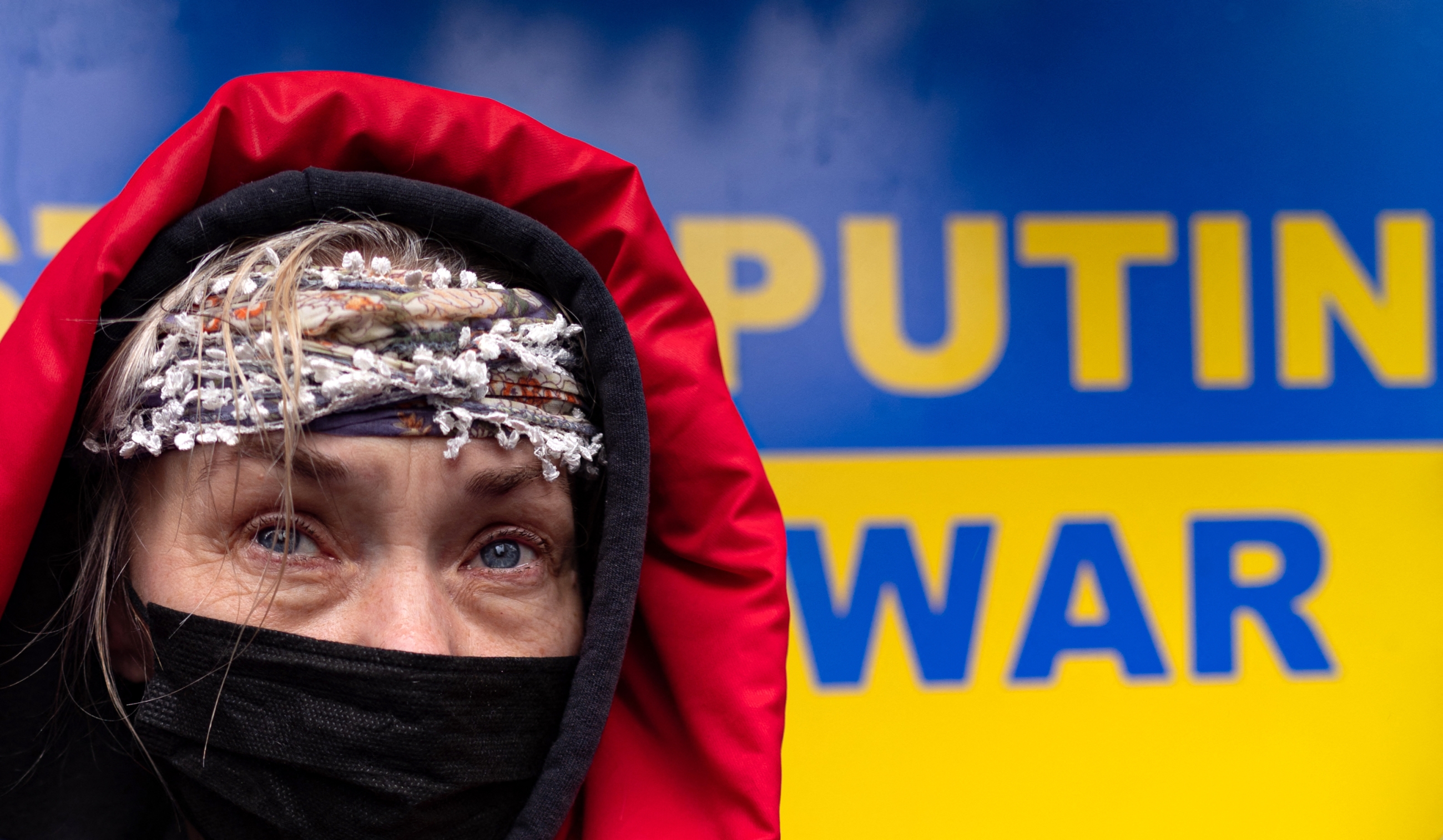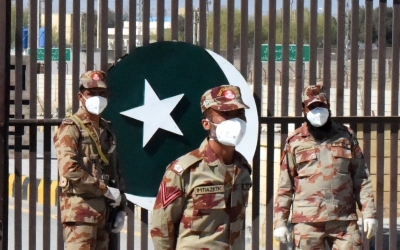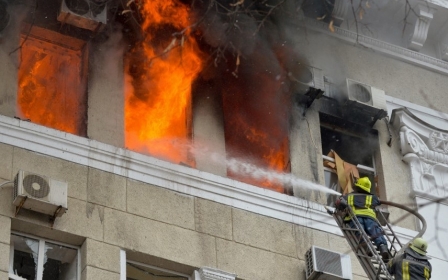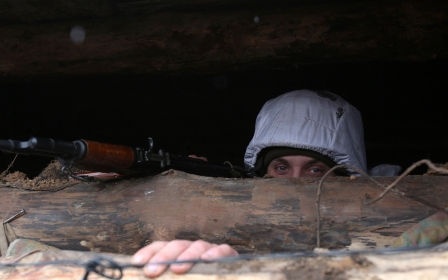Iranian press review: Tehran media hail Russian invasion of Ukraine

Tehran blames Nato for Ukraine invasion
Iranian officials have accused Nato of provoking the current crisis in Ukraine and urged all sides to reach a peaceful solution.
On Thursday, Iran's foreign ministry spokesman, Saeed Khatibzadeh, blamed the United States and Nato for Russia's military operation in eastern Ukraine.
'The Ukraine crisis is rooted in Nato's provocations'
- Hossein Amir Abdollahian, Iranian foreign minister
The Fars news agency quoted Khatibzadeh as saying: "Nato's continuous provocative actions, led by the US, has caused the current situation in Eurasia."
Iran's foreign minister, Hossein Amir Abdollahian, has also blamed western powers for the Ukraine crisis.
"The Ukraine crisis is rooted in Nato's provocations," he wrote on Twitter.
"We don't believe that resorting to war is a solution. Imperative to establish ceasefire & to find a political and democratic resolution," Amir Abdollahian added.
Since the beginning of the Ukraine crisis, Farsi outlets close to policymakers in Iran have widely celebrated Russia's decision to send troops to two eastern regions in Ukraine.
On Wednesday, the Iran daily that belongs to President Ebrahim Raisi's government covered the latest developments in Ukraine under the headline: "Russian victory without a headache."
On the same day, the front page of the pro-conservative Kayhan daily led with the headline: "Russia's hard strike against the US."
The daily, which is effectively the mouthpiece of Iran's supreme leader, hailed Russian President Vladimir Putin's move to deploy troops to the separatist-held regions of Donetsk and Luhansk in Ukraine.
"As was predicted, the Ukrainian pawns became the losers of a dangerous chess game between the US and Russia," Kayhan wrote.
"It seems that the Ukrainian government had forgotten that in a battle of the elephants, the lawn would be damaged," the daily added.
The Jam-e Jam daily, affiliated with Iran's Islamic Revolutionary Guard Corps (IRGC), also welcomed the move and published a photo of pro-Russia activists waving Russian flags in Donetsk on its front page.
"Undoubtedly what has happened in Ukraine was caused by the western countries' (specifically the US and the UK) interventionist approach toward Ukraine," the Jam-e Jam wrote.
Iran-Afghanistan railway equipment stolen
The telecommunication equipment and metal parts of the railway tracks connecting the Iranian city of Khaf to Herat in Afghanistan were reportedly stolen after the Taliban's takeover, making the railway dysfunctional.
According to the Khorasan daily, the damage inflicted on the railway in Afghanistan was over $4m. Iran had paid all the expenses for this railway, hoping to open a new trade channel between the two countries.
'The toilet taps, electricity wires, communication cables, and telecommunication systems were all stolen'
- Hafez Sadatnejad, Iranian official
The daily reported that Iran, despite international sanctions, had imported the stolen telecommunication equipment at the Rozanak station inside Afghanistan from New Zealand.
"Whatever was possible to steal, was stolen from Rozanak station," Khorasan quoted Hafez Sadatnejad, an Iranian official, as saying.
"The toilet taps, electricity wires, communication cables, and telecommunication systems were all stolen. And they destroyed the equipment they could not steal," he added, without giving further information about who the thieves were.
In December 2020, the cross-border Khaf-Herat railway was inaugurated. But, due to security reasons and then the Taliban takeover, the only train that has ever run on the track was a cargo train on the inauguration day.
State TV intensifies censorship
In an Instagram post, history researcher Mohammad Rahmani revealed the unprecedented level of censorship at the state-owned Islamic Republic of Iran Broadcasting (IRIB), which holds a broadcasting monopoly in the country.
Rahmani, who was invited as a guest for a pre-recorded programme to speak about Reza Shah, the founder of the Pahlavi dynasty, was asked to sign a letter promising not to say anything that conflicted with official historical narratives.
"It was a weird commitment letter, urging me to be loyal to 'the standards of the Islamic Revolution', not to talk about the programme on social media, and not to protest even if they decide not to broadcast the programme," Rahmani wrote on Instagram.
He also reported the experiences of other experts who appeared on state television in Iran.
"A friend of mine, a professor and a real expert, was once invited to a programme and told what to say in response to the questions. He told them they'd better ask their janitor to do so, and he left the studio," Rahmani added.
Heavy censorship in Iran's state TV is not a secret to anyone; however, this is the first time that levels of control have been revealed.
Iran's state TV is run under the direct supervision of Iran's supreme leader.
*Iranian press review is a digest of news reports not independently verified as accurate by Middle East Eye.
Middle East Eye propose une couverture et une analyse indépendantes et incomparables du Moyen-Orient, de l’Afrique du Nord et d’autres régions du monde. Pour en savoir plus sur la reprise de ce contenu et les frais qui s’appliquent, veuillez remplir ce formulaire [en anglais]. Pour en savoir plus sur MEE, cliquez ici [en anglais].






